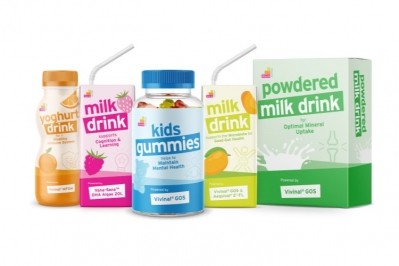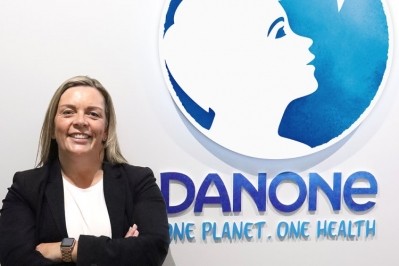What is specialized nutrition - and why are dairy majors drawn to it?

Specialized nutrition comprises research-backed nutritional solutions formulated for consumer groups with specific nutritional needs. This includes anything from early life nutrition through sports and active nutrition to healthy ageing.
According to Nielsen IQ, in 2024 consumers know more than ever before what they want, need and what’s good for them. They are also more likely to spend on products that combine multiple health benefits1.
Over the years, dairy companies have benefited commercially by repurposing whey, a byproduct of cheese manufacturing, into a nutritionally-dense dairy ingredient that’s become a mainstay in sports nutrition and functional food and beverage innovation.
This is no mean feat, particularly at a time when sports nutrition has become the fastest-growing consumer health category globally, according to Euromonitor International; growth driven by both lifestyle consumers and those interested in active nutrition.
But dairy majors are innovating way beyond whey.
Nestlé, Lactalis and Danone – three of the largest dairy firms by revenue – all run specialized nutrition divisions dedicated to the research and product development of solutions spanning from early-life nutrition to clinical care.
Elsewhere, New Zealand’s Fonterra runs two B2B ingredients brands: NZMP, which supplies dairy-based ingredients for anything from food manufacture to specialized nutrition; and Nutiani, the co-op’s B2B health and wellness brand that supplies high-end ingredients such as lactoferrin.
In Europe, Dutch co-operative FrieslandCampina and Denmark’s Arla Foods both run B2B ingredient divisions; and in Asia, Mengniu recently launched its very own sports nutrition brand M-Action with a range of liquid protein nutritional supplements.
Danone’s medical nutrition focus: A case in point
Specialized nutrition accounts for 30% of Danone’s total revenues, with a growth of +10% like-for-like in 2022. The French dairy giant is the leader in medical nutrition in Europe and the second largest early life nutrition player globally.
Danone has longstanding expertise in medical nutrition. But the firm’s recent investments in the medical nutrition space have highlighted just how important this segment is to Danone as the company aims to drive growth under its Renew Danone strategy.
In September 2023, the company announced it would spend €50m (around $54m) to expand a factory in Opole, Poland, to strengthen the group’s medical nutrition capabilities – specifically, to add an adult medical nutrition production line that would serve patients dependant on feeding tubes.
In October 2023, the company said it would commit 450 million Turkish liras (around €13m/$14m) in its Lüleburgaz production facilities, which will manufacture both dairy and medical nutrition products.
Danone is targeting the adult medical nutrition market because it’s a space tipped for future growth driven by ageing populations and the increased prevalence of chronic illnesses.
A similar announcement followed in May 2024, when Danone told the press that the company would inject €70m ($76m) in a medical nutrition production line at its Steenvoorde site in the north of France. The majority of the investment, circa €60m, would be used to produce nearly 30 recipes of Danone’s oral nutritional supplement for patients, under its specialized nutrition range, Nutricia. (The rest would go towards the installation of a biomass boiler.)
The Steenvoorde factory will produce almost 20 million liters of medical nutrition products per year, said Danone, including solutions to improve the quality of life for patients who suffer from malnutrition resulting from illnesses.
Also in May, Danone announced it had completed the acquisition of Functional Formularities, a US-based whole foods tube-feeding business, in a move that would lead to the expansion of the French dairy giant’s enteral tube feeding ranges.
So what are the areas of interest within medical nutrition for Danone?
A spokesperson for the dairy major told us that there is a rising prevalence of chronic diseases, such as cancer, and a global ageing population, meaning that the need for medical nutrition products that could contribute to better patient outcomes is expected to increase.
“At the same time, we know there are current patients who could benefit from medical nutrition but have no access to it; only 1 in 3 patients who need it actually get medical nutrition,” the spokesperson explained.
“This current gap and the future needs emphasise the need for investment and innovation in this sector. Danone is committed to accelerating our adult medical nutrition product offering through both strengthening our industrial capacity, and investing in research and innovation to improve outcomes for millions of patients globally.”
Danone researches and innovates across several product types, including oral nutritional supplements, thickening products for patients with difficulties swallowing, and specialized tube feeds and medical devices for patients who cannot consume food orally.
“It has been demonstrated that medical nutrition can help reduce medical complications, support recovery and independence, and lower healthcare resource use,” the company told us. “For example in cancer, medical nutrition has demonstrated benefits in fewer post-op complications, improved tolerance to treatment, shorter length of hospital stay and higher patient quality of life.”
As for Danone’s claim that only some of the patients that need medical nutrition products have access to such, there are several reasons. “This can be due to low awareness of the role of nutrition and the risks of malnutrition in healthcare, and due to healthcare systems being put under pressure as a result of the growing prevalence of diseases and the increased patient needs,” the spokesperson told us.
“That’s why it’s important to us to invest in the medical nutrition category and be able to serve as many patients as possible. We believe that everyone who needs medical nutrition should have access to it, so we will continue to innovate with products that meet patient needs and to drive increased awareness of the benefits of medical nutrition to support patient outcomes.”
Why are dairy companies drawn to specialized nutrition?
Dairy companies have access to some of the most lucrative (e.g. lactoferrin) and most popular (whey, casein) nutrition ingredients on the market – and opportunities in specialized nutrition beckon.
According to Euromonitor International2, consumers today seek out nutritional products that can deliver multiple health and physical benefits, from weight loss and digestive health to immunity and sleep. Coming up with that ‘magic pill’ – ideally in a more appealing format – is a key challenge for formulators.
Sports nutrition has also been tipped for further growth in 2024 thanks to demand from both lifestyle and active consumers.
In early life nutrition, developing formula recipes that get as close as possible to breastmilk will also continue to drive innovation, as will pressure from new generations that seek to align their brand choices with their values3.
And the global consumer’s desire to improve its health and well-being is likely to drive the industry forward in the coming years.
According to McKinsey & Co's Future of Wellness Survey that polled 7,500 global consumers in 2020, 79% of those polled said they believed that wellness is important, and 42% of the respondents put wellness as their top priority. The global management consultancy added that consumers in every market increased their prioritization of wellness 'significantly (from 27% to 65%) over the past 2-3 years.












